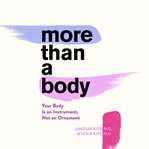Review by Booklist Review
*Starred Review* Northwestern University psychology professor Engeln's sharp examination of beauty sickness reveals its disturbing impact on women of all ages, ethnicities, and backgrounds. Defined as what happens when women's emotional energy gets so bound up with what they see in the mirror that it becomes harder for them to see other aspects of their lives, beauty sickness is incredibly destructive. Engeln's research explores how media representations of idealized femininity affect women's self-confidence as well as how women learn to evaluate their own appearances and self-monitor. Each chapter intersperses Engeln's interviews with analysis of her lab studies and other research. The interviews allow women to explain their own diverse experiences with beauty sickness. Engeln's writing is engaging and conversational, and often includes notes on her own experiences as examples of the concepts she introduces. Beauty Sick addresses a wide range of subjects, including media, social-media usage, disordered eating, ineffective methods to promote body positivity, and ways that beauty sickness may be overcome. Engeln's book is thought-provoking and will be fascinating for all readers, especially those interested in psychology, cultural studies, media, or gender studies.--Chanoux, Laura Copyright 2017 Booklist
From Booklist, Copyright (c) American Library Association. Used with permission.
Review by Library Journal Review
Engeln teaches psychology at Northwestern University where she runs the Body and Media Lab (BAM), and became known for her 2013 TEDx talk, "An Epidemic of Beauty Sickness." A scholar at ease with social media and popular culture, she offers compelling evidence about how women and girls have been "brainwashed" into believing stereotypes about what is "beautiful." This never-ending quest, Engeln suggests, leaves women dispirited, unable to use their time more meaningfully, and lighter in the pocketbook each time they buy new products that promise them (however enlightened they appear to be) love and happiness. Although obviously angry, the author can also be judicious and honest about the quandaries women (including herself) face. VERDICT There's a world of complexity attached to the idea of being beautiful, and this well-written discussion about particular aspects of it should be well received in both public and academic libraries.-Ellen Gilbert, Princeton, NJ © Copyright 2017. Library Journals LLC, a wholly owned subsidiary of Media Source, Inc. No redistribution permitted.
(c) Copyright Library Journals LLC, a wholly owned subsidiary of Media Source, Inc. No redistribution permitted.
Review by Kirkus Book Review
How real women continue to struggle to reach the fictitious goal of having the perfect body.Women often joke about having a bad hair day or how they can find nothing to wear, but as Engeln (Psychology/Northwestern Univ.) discovered through her intensive research and numerous interviews, our culture holds women to an impossible standard of perfection. The struggle to reach that pinnacle, even when women acknowledge that it's impossible, is creating a sector of society that is fearful and anxious about body image from a very young age. Women spend hours fussing and primping their hair, makeup, and nails and planning the perfect outfit and almost every waking moment worrying about their weight and body image. Engeln calls this pervasive situation "beauty sickness""what happens when women's emotional energy gets so bound up with what they see in the mirror that it becomes harder for them to see other aspects of their lives." Furthermore, she writes, "although we hear the most about beauty sickness in young women, it's a malaise that affects women of all ages." From as early as age 5, girls fret about their weight and appearance, and they quickly discover that what they wear can affect their chances to play like their male friends. As girls move into adolescence and young adulthood, the objectification intensifies, and women discover that they must walk a fine line between feeling powerful, sexy, and attractive and being considered slutty for wearing revealing clothes. It's a double standard that can affect women in every area of their lives. As Engeln points out, change starts at the individual level, with women taking possession of their own thoughts. Her solid ideas, mostly related in the final section, "How We Can Fight Beauty Sickness," will help women think positively about themselves regardless of body shape. Thorough research and helpful personal stories effectively relay the dilemma that nearly all women face on a daily basis. Copyright Kirkus Reviews, used with permission.
Copyright (c) Kirkus Reviews, used with permission.

